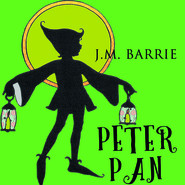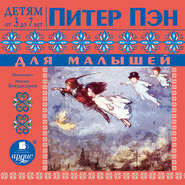По всем вопросам обращайтесь на: info@litportal.ru
(©) 2003-2025.
✖
A Widow's Tale, and Other Stories
Настройки чтения
Размер шрифта
Высота строк
Поля
"Oh, nothing!" she said. "I am always making mistakes. Nelly is – not at all what she used to be, dear. Matrimony is not good for some people, and ladies in India get dreadfully spoiled sometimes. They are accustomed to so much attention. There are not so many of them there as here, and they are never contented if they have not every man they see at their feet."
"I did not remark that in Nelly," said May, who was very pensive, and so wounded and sore in her poor little heart that it did her good to be disagreeable to Julia. "There was Bertie Harcourt, for instance, whom she took no notice of – and who, I am sure, was not at her feet."
"Ah, Bertie Harcourt!" cried Miss Bampton, "He" – she paused on the pronoun for greater emphasis, speaking with fervour – "He – is a heart of gold."
"Is he?" said May, indifferently; "you seem to imply that others are different – and indeed I think that it would be much more comfortable to have a heart like other people."
"Oh, May!"
"I wish you would stop all that," cried May, angrily; "when you get into one of your moods, Julia, you are intolerable. I wish you would let Nelly Brunton alone: I don't see anything remarkable about her," the girl said with a toss of her head, walking back into the drawing-room, where she flung the piano open, and began to sing in the most defiant manner. It was a wet day, the lawn swept by a white blast of rain, and all the trees cowering piteously as if running in for shelter. Poor Miss Bampton sat down in a deep chair to hide herself, feeling as if she had been the occasion of all that had happened, and that it was natural she should suffer accordingly. And when presently May ran singing up-stairs, and the door of her room was heard to shut upon her, poor Julia did not follow. She dared not follow; for the first time in her life poor little May, now finding out what it was to be grown up and a woman, had to bear her moment of bitterness by herself. I need not say that Julia cried silently all the time, sunk in the depths of the big chair, so that Mr Bampton when he came in, in quest of tea or something to break the dulness of the afternoon, saw nobody in the room, and went out again calling indignantly for Ju and Maysey, and demanding of the butler in angry tones whether this afternoon of all others, when no one could go out or do anything to amuse oneself, there was to be no tea.
CHAPTER V
Mrs Brunton was not, I think, at all comfortable in her mind as she left her cousin's house. It had been in some sort a trial visit. She had not gone anywhere, or seen anybody, except aunts and other uninteresting relations, since she had returned home. She had paid a long visit to her husband's family, with her children, where everything of course was mourning and seclusion, and where she was made more conscious of her widowhood than of any other condition in her life; then she had been in the country with her own people, where everything was subdued in order to be suitable for poor Nelly; and then she had been involved in the trouble of settling, finding a little house, which was nice and not too dear, which would be good for the children, and quiet, and yet sufficiently in the way to be accessible to those who were most interested in her. This had cost a great deal of trouble and kept her in full occupation, so that it was only when she had settled down, furnished the house, and arranged everything, and got her new address neatly printed upon her writing paper and her visiting cards (if she ever had any need for the latter, which she doubted), that she had consented to go for a fortnight to Bampton-Leigh, leaving the children under charge of their excellent nurse, who had assisted at their birth and was devoted to them – for her uncle Bampton could not bear children in the house. She had explained to her only friend at Haven Green, the clergyman's wife, and still more gravely she had explained to herself, that this was in every way a trial visit to see whether she could bear society again. Society, she said to herself, without Jack! without the consideration which is accorded to a woman who has her husband behind her. She did not know how it looked to a widow, who would naturally be shut out from some things, who might perhaps be pushed aside among the dowagers, who certainly would see everything from a different point of view. Should she be able to bear it?
Alas, Nelly had felt that she was but too able to bear society! She had gone into it with the elasticity and ease with which one glides into one's native element. The absence of Jack behind her, the position of a widow among the dowagers, had never once come into her mind. She had not even required time to bring her to the surface, but had risen at once to be, as she had always been, rather the ringleader than a follower – always in the front of everything, singing, talking. Nelly felt herself flush and burn all over, as she sat in the Bampton carriage on the way to the station with the windows shut between her and the pelting rain; and then she burst into a guilty yet irrestrainable laugh. Yes, she had proved to herself that she was quite able to bear society, and that the temptation to fall into her old ways was not in any way lessened by widowhood. She had done the same sort of thing before now, out of sheer high spirits and love of enjoying herself, when Jack was alive and looking on, and amused by his wife's pranks. She had always known that she was too fond of admiration, too fond of fun. It was not the first time, alas! – and this she had always known was wicked – that she had given some brother officer's fiancée a moment of alarm, a thrill of misery, by taking the man away, and boldly tying him to her own apron-strings for a week or so, for some occasion of festivity, "for fun," and to show what she could do, Nelly laughed, and then she cried, at some of the recollections thus evoked. Jack had even been brought to the point of scolding her – not on his own account, but on account of the lady on the other side. And then Nelly, as gaily as she had taken him up, had thrown over her prey.
All these naughty and wicked ways – of which she had been only able to say in self-defence that she meant no harm – were still in her, it appeared, though she was a widow and had believed that she never would be equal to society again. Oh, what a frivolous, unfeeling little wretch she must be! To think that she had plunged into it as if nothing had happened! The faces of her two cousins – one at the door, seeing her off with such warnings about her imprudence in settling so near town, and the other in such gloomy gravity at the window behind, watching her going – could not be remembered without compunction. And Nelly could not say to herself, as she had done before, that no harm was done, that the sinner would return and be forgiven. This man Fitzroy was different. He was not May's fiancé! Perhaps, Nelly said to herself, he never would have been. He was not a marrying man; he was a man who amused himself, and whom to expose and show in his true light was a good thing for the girl. But this was mere casuistry, as Nelly knew; for May had given the man her heart, or, if not her real heart, at least her imagination, and she, Nelly, had wickedly taken him away.
It is difficult, however, to see the full enormity of one's own guilt in such a conjuncture. There is always a certain amusement in it to the culprit. It is fun – though it is so little fun to the other persons concerned. Nelly did not, however, feel herself at all responsible so far as Mr Fitzroy was concerned. She had not inspired him with a hopeless passion; she had probably only afforded him the means of extricating himself from a situation in which things were going too far. When Nelly was safely established in the railway compartment, restored completely to her own independence and individuality, with all her packages around her, a modest tip administered to Johnson, and the Bampton carriage out of sight, May indeed floated out of her thoughts; but Percy Fitzroy did not so disappear. Should she ever meet him again? she wondered. Would he seek her out, as he had said, at Haven Green? She felt that it was quite likely he might do so, being a man who was fond of his amusement; and if so, Nelly promised herself that the situation should certainly not be permitted to become strained, or the fun go too far. She had been more or less irresponsible, a free lance, under Julia Bampton's eyes; but in her own little house she would always remember that she was Jack's widow, a householder, the head of a family, a personage in her own right, very different from a girl protected by home – very different from a young wife thinking of nothing but a little fun, and with Jack, who understood all her ways, behind – oh, very different! She had her dignity to keep up, her position, her place in life. If this man insisted on coming, he should be made at once to see that a flirtation was entirely out of place in these circumstances. He might make a call – there was nothing to prevent any man making a call – he might even sing a song, or she might join him in a single duet: but no more – upon no pretence any more.
No later than the first Sunday after Mrs Brunton's return these fine sentiments were put to the test: for Mr Fitzroy appeared in the afternoon, early, with the full intention, as was evident, of staying as long as he should be permitted to stay. Nelly had not forgotten him at all in that little interval. He had intruded into her mind a number of times, to her annoyance and discomfiture. Why should she keep wondering whether he would come? Better that he had come and gone, and Nelly had never thrown a thought after him. Why should she think about this man, or whether she should ever see him again? But she did, in spite of herself, perhaps because he was the only figure visible on her way, where there had been once so many. Her house was a nice little house, made in a sort of imitation of that country house which is the English ideal. In France and other countries the better houses of the village are built like town houses – high, with rows of shuttered windows and a big staircase. But in England it is always the country house that is copied – windows opening upon a little lawn, mimic trees, shrubberies, conservatories, the walls covered with climbing plants and roses.
Nelly's villa had a little verandah on one side, a little hall, with a tiger skin – one of poor Jack's trophies – spread out in it; a drawing-room full of Indian curiosities. She went and came by the drawing-room window oftener than by the door, and so did her intimates the clergyman's wife and daughters, who would run round through the garden and tap at the pane. Of course Mr Fitzroy did not do this. He came decorously through the hall, ushered in by the maid, and was received with a little state by Mrs Brunton, who had her two children with her – little Jack, aged five, and Maysey, aged three. These little people remained playing in the room during the greater part of the interview, in which scarcely a word was said about music. Mr Fitzroy took the little girl on his knee, and patted the boy on the head, and asked them their names. "Ah, Maysey," he said, "the same as your cousin, Miss May Bampton." "Yes, the same: for they are called after the same person, a great authority in the family," answered Mrs Brunton. This was the unexceptionable character of their talk.
But that was only the first of a series of continual visits, during which, as was inevitable, the intimacy grew. The piano was opened on the third or fourth occasion, and after that the children no longer formed part of Mrs Brunton's mise en scène. She did not any longer feel it necessary to keep them in the front, to keep herself and her visitor in continual remembrance of her widowhood and her responsibilities. When a friend comes two or three times in a week, you cannot be always in a state of preparation for him. You must occasionally fall off your guard, forget that there is anything in his presence that needs to be guarded against. The children came in whenever they pleased, but it was the hour for their walk, or they preferred to play in the garden, which was much better for them. And Nelly forgot: sometimes it seemed to her that she forgot everything, their very existence, and poor Jack who was dead, and India and all her experiences, and was for a moment now and then as she had been when Jack was a young lover, and she was nineteen – at home in the old days. It is curious how a woman, who has had a home of her own for many years, goes back to the time when her father's house was the only place that bore that name. "We used to do that at home," the matron will say, with a smile or a tear, realising in a moment the girl she used to be – with how much stronger reason when she is only parted from it by some half-dozen years. Nelly felt as if she were again a girl at home during many of those golden afternoons, as if nothing had ever happened, as if her life were as yet all to come. She forgot herself, and that position which had been so much impressed upon her by all her friends. Poor Nelly! It was very wrong for a woman who was a widow, and had been a widow not eighteen months; but she was young, and her heart was very light and elastic, rebounding from the deep gloom which was so unnatural to her character and to her age. For her character, I need not say, was not a solid and steady one, as that of the mother of these two little children ought to have been. And it was so sweet to be young again, to receive the homage which seemed so genuine, to have the companionship which was so entrancing, to sing with that other voice which was so suited to hers, to talk and smile, and be amused, and find the time fly. She did not know many people – nobody, indeed, but good Mrs Glynn and the girls, who were absorbed in parish work and mothers' meetings, in which they had hoped and expected Mrs Brunton would take her part. They had wanted her to take a district; they had set apart many things in which she ought to take an interest. But Nelly's interest had never been awakened in such things. She would have been dull, very dull, in her new home if it had not been for that very different kind of interest which was so much more in her way. It is impossible, when you have an excellent nurse who really knows much better what is right than you do, to occupy your whole time with a little boy of five and a little girl of three. Nelly gave Jack his little lesson every morning very punctually, and devoted to the children as much of the earlier part of the day as remained when they had taken their walk, and fulfilled the little routine of their existence. And then in the afternoon —
Well, in the afternoon Mrs Brunton found it dull. She went across to the rectory, and often found that the girls were all out about their parish work, or else playing tennis at the house of some neighbour whom she scarcely knew, or who did not venture to ask the young widow to appear at a garden party – so soon. And then Nellie would take a rather mournful, lonely walk. Is it wonderful that when she saw Mr Percy Fitzroy coming her heart gave a jump of pleasure, and her face grew bright with smiles? Not at first because he was Percy Fitzroy – but because he was life and movement and pleasure and fellowship, and because this was the kind of occupation and entertainment which she had been most used to in her former career.
CHAPTER VI
There is nothing in the world, as all the world knows, that can go on for any time at a given point without developments, and those probably of an unforeseen sort, especially not a kind of intercourse like this – the "friendship," as Nelly to herself stoutly and steadily called it. It was much remarked upon, as may be supposed, but not in any unkindly way. Though her neighbours scarcely knew her as yet, they knew, or thought they knew, that the young widow about whom they were all prepared to be so much interested would not, as was said, be a widow much longer. And her husband not yet a twelvemonth dead, some said, who were of the class who always hear the wrong version of a story. Others, who had called upon her and liked her, explained to each other apologetically that young Mrs Brunton was a sweet young woman, and of course could not be expected to make a recluse of herself at her age. Thus it was with charity, though clear-sightedness, that the village saw Mrs Brunton and her "friend" from town, followed by the children and the nurse, walking across the fields towards the river one September afternoon, the gentleman in boating costume. Mr Fitzroy himself was not perhaps so much touched by that procession as were Nelly's neighbours. He had come early, and proposed that, as the river was not far off, Mrs Brunton should go for a row, to which Nelly had replied with delight – half naturally, half to cover her own pleasure; for are not all things mingled in this world? – that little Jack had been crying to go on the river, and that it would be such a treat for the children. Young mothers have a way of doing this, on much less moving occasions, when the delight of the children is the last thing in the world of which their entertainers are thinking. Fitzroy had to make a great gulp and swallow the children, though he did not like it. The nurse sat behind him in the boat, and Nelly kept the two little ones beside her in the stern, and they were very well behaved. But Fitzroy felt that, had any of his friends seen him on the river in this patriarchal guise, the joke would have rung through all the clubs where his name was known. Happily, however, in September there are few people about of the club kind. When he came down another time in his flannels Mrs Brunton said nothing about the children. She hesitated a little, and the colour fluttered in her face. Oh, if she only knew what was the right thing! There was no harm in it, certainly. It was like walking along a public street with him, which was a thing no one could object to. And if she refused to go, what would he think? or, rather, what would he think that she was thinking? He would probably imagine that she was afraid of him, that she was giving a character to his friendly attentions which did not belong to them, thinking that he was in love with her. How silly and vain that would seem; how he would laugh in his sleeve to see that this was what she thought, like any silly girl – she, a woman whom he only considered as a friend!
This was the argument which made Nelly finally decide to go. And she enjoyed that row beyond anything she could remember. It was as if she had made an escapade as a girl, with some one who perhaps one day – But she never would have been allowed to make that escapade as a girl. Now, at her present age and in her position of dignity as a married person, what could there be wrong in it? And yet it was rather wrong. She was a little ashamed, a little self-conscious, hoping that nobody would see her. And the sunset was so glorious, and the river so golden, and the sense of a secret, intense companionship so sweet! There was very little said between them – nothing, Nelly protested to herself afterwards, that all the world might not have heard – but they came home across the fields in the misty lingering autumn twilight, with a bewildering sense of happiness and perfect communion. "I do not know," Fitzroy said, "when I have spent so happy an evening." "The river was so lovely," said Nelly, faltering a little. "Everything was lovely," he said. He was so delicate and considerate that he would not come in, but said good night to her at the gate, in the presence, so to speak, of all the world.
And this occurred a good many times, as long as the fine weather lasted. It would be such a pity, Fitzroy said, not to take advantage of it, and, indeed, Mrs Brunton thought so too. And once or twice he did come in, and there was a little supper, and he went off in good time for the half-past nine train. Nobody could say that was late: and then, to be sure, if any one did say so, Nelly was not responsible to anybody for her actions. She was herself the best judge of what was befitting. Perhaps she was not quite so sure now that nothing was ever said that all the world might not hear. Things were said – about philosophical subjects, about the union of souls, about affinities, about the character of love metaphysically considered, whether a man or a woman could love twice, whether sometimes in early youth it was not more imagination than love that moved the heart, whether it did not require a little experience of life to make you really acquainted with the force of that sentiment. "There is no passion in the love of girls and boys," Fitzroy said, and he almost convinced Nelly that passion was the salt of life, the only thing really worth living for. These discussions perhaps were a little dangerous. But they were not personal – oh no! abstractions merely, the kind of subjects which promote conversation and which draw out the imaginative faculties. The thing that proved this was that there was not a suggestion of marriage ever made, nothing which approached that subject. Love-making from the point of view of an Englishwoman means marriage as a matter of course. And Fitzroy had never in the most distant way said to Nelly, "Will you marry me?" "Is it possible that you should one day become my wife?" He had talked, oh! a great deal about love in the abstract. He had said hurried things, phrases that seemed to escape him, about a man's "passion." And Nelly had felt many times, with a trembling of all her faculties, that he and she were on the eve of a crisis, that the moment must soon come in which these decisive words must be said.
But that crisis never did come, though certainly the excitement of the intercourse grew daily, and the suspense bewildered and overwhelmed her so that she was entirely absorbed in it, and no longer her own mistress. She had let the stream carry her away. From the time when she went out first alone, with something of the secret delight of a girl making an escapade, upon the river with her kind visitor in the early September, till now, scarcely a month later, what a change had occurred! Then she obeyed a pleasurable impulse, partly that he might not think she thought of anything beyond the pleasant intercourse of an hour or two; now she felt her whole existence, her life, her happiness, her credit with the world, hanging as it were on the breath of his lips. Would he say, or would he not say, the words which would make all clear? For a time after every meeting she felt as if she had barely escaped from that supreme scene, holding it off, according to a woman's instinct; and then a chill began to creep over Nelly when he went away without a word: and life and everything concerning her seemed to hang in that suspense. Poor Nelly! poor, foolish, unsuspicious creature! If she had ever been a cruel little flirt in her heedlessness, never meaning any harm, she was punished now.
One night – it was early in October – Fitzroy stayed late and shared Nelly's supper, and lingered after it, going back to the drawing-room with her, not taking leave of her in the little hall as he was in the habit of doing; and thus he missed the half-past nine train. But what did that matter? for there were two later, and an hour's delay could not, after all, make much difference. They were both full of emotion and suppressed excitement, and Nelly felt that the crisis could not be much longer delayed. She made, however, that invariable effort to keep it at arm's length, to talk of other things, which is one evidence that things have come to an alarming pass. She chattered, she laughed, flushed with feeling, with suspense and excitement, thinking every moment that the passion (certainly there was what he called "passion") in his eyes must burst forth. But still the suspense went on. Nelly's nerves and spirit were almost on the point of breaking down when she was suddenly roused by the chiming of the clock. "Oh," she cried, "eleven! you must run, you must fly! You have not a moment to lose for your train – the last train!"
He looked at her for a moment with unutterable things in his eyes. "Is it so very indispensable that I should catch the last train? Nelly! how can I leave you? How can you send me away, when you know how I love, how I adore – "
There came at this moment a sharp knock at the door.
"If you please, ma'am," said Nelly's excellent nurse, "there's just time for Mr Fitzroy to catch the last train."
And he had to go, seizing his hat, hurrying out with an apology for staying till the last moment, while Nelly, trembling, terrified, shrank back into the room where a little fire was still burning, though the night was warm. She went back to it with the chill of exhausted nerves, and held out her hands to the smouldering glow, while nurse locked and bolted the hall door with unnecessary noise and commotion. Then that excellent woman once more put her head into the room with a look which Nelly could not meet. "Is there anything I can get for you, ma'am, before I go to bed?" she said.
Nelly thanked her, hurriedly recalling her faculties. "How glad I am you came to warn Mr Fitzroy, nurse! I had told him, but he paid no attention. Gentlemen always think they can catch a train by a rush at the last moment." She felt that she was apologising to nurse, and was ashamed of doing so, though it was shame and uneasiness which had forced the words to her lips. Nurse did not commit herself to any approval or condonation of her mistress's behaviour. She said only "Yes, ma'am," and marched up-stairs with measured steps to bed.
Nelly sat down on a low chair in front of the smouldering fire. She was trembling all over, scarcely able to command herself, her cheeks burning with the heat of excitement, yet her teeth chattering with a nervous chill, her strength almost completely broken down. Now that she was alone the tension of her nerves gave way: the light went out of her eyes, her heart seemed to suffocate her, struggling in her breast. The agitation of her whole being prostrated her physically as well as mentally. She lay back upon her chair, as if its support were necessary to hold her together, and then she bent forward, holding her trembling hands to the fire. Had the crisis come, not as she had expected, but in a form that she did not understand? or was this strange interrupted climax a mere break in the stream, no end at all, a broken thread to be taken up again to-morrow and to-morrow indefinitely? Nelly was not capable of forming these questions in her mind, but they swept through the whirlwind within her, with a horror and alarm which she did not understand and knew not how to explain. What had he said? Why had he said that and not something else? What had she done that he had looked at her so? No, she did not ask herself all this; these questions only went whirling about in the wild commotion of her soul. She did not know how long she sat thus, incapable of movement. The fire sank lower, and she felt, without knowing whence it came, a chill draught from her right hand where the window was, but took no notice, perceiving it only, not in a condition of mind to account for it. But Mrs Brunton suddenly sat up erect, and all that tempest stopped in a moment, at the sound of a footstep outside and a tap on the window. What was it? Oh, heaven! what was it? She suddenly remembered in a moment that the window had been unfastened because the room was too warm. The shutters had been almost closed upon it, leaving only the smallest opening to give a little air, and Nelly had forgotten all about it, in her agitation and trouble. She sat for a moment motionless in her panic, thinking of burglars and robbery, not daring to stir. Then there came another tapping, and a low voice. "Mrs Brunton, I have lost my train; I remembered that the window was open; may I come in?"
The next moment, without waiting for any reply – which, indeed, Nelly in her consternation was unable to give – he pushed open the window quickly and came into the room. She stood petrified, staring at him, feeling as if she must have gone suddenly mad, and that all this was a hallucination, as he entered with a glow of triumph in his face.
"Nelly," he said, coming forward to her, dropping down on his knee by the side of her chair. "Darling, you left it open for me! You knew I would come back."
It all happened in a moment, and in a moment Nelly had to make her decision: her life, her fate, her good name, everything in the world worth thinking of, was in the turn of the scale. If he had not made that suggestion, heaven knows, in this prostration of her whole being, what poor Nelly might have done. But it gave her a sting of offence too sharp to bear.
"I left it open for you!" she cried, starting up. "You must be mad, Mr Fitzroy! What do you want? What do you want? Why have you come back here?"
He was startled by the terror, yet almost fury, in her eyes. "Forgive me," he said, starting up also, facing her, "I have lost my train. You know it is the last. What could I do but come back to the only house where I am known? and I thought you would not refuse me shelter for the night."
"Oh," she said almost wildly, "shelter – for the night!"
"May I close the window? It's rather cold, and you are shivering. If I have frightened you, forgive me, forgive me! Rather than that, I would have walked to London or sat down on a doorstep."
"I am not frightened," said Mrs Brunton with a gasp. Her senses came back to her; she felt that she must keep very cool, and make no scene. "It was a little alarming to see a man come in," she said. "It is very unfortunate that you should have lost your train. I am afraid you will not be very comfortable, but we will do the best we can for you."
He caught her sleeve as she was turning to the door. "Where are you going?" he cried.
"Only to call one of the maids to make a room ready for you."
"I want no room," he said. "An hour or two on the sofa will be luxury; and I shall be off in the morning by dawn of day, and disturb no one. Nobody need know: and you are not the sort of girl to think of Mrs Grundy. Nelly, my darling! stay, stay with me a bit! what is the use of taking me in if you leave me like this? Half an hour, just half an hour, to finish our talk!"
"When I have given my orders, perhaps," said Nelly. She would not stop even to forbid the familiarity of his address. She walked out of the room with composed steps, but as soon as she was outside flew up the dark staircase to the nursery, where nurse, an anxious and troubled woman, was not yet asleep. Mrs Brunton went in like a ghost to the room in which the night-light was burning, where the children were breathing softly in their cribs. "Nurse," she said, with all the composure she could command, "Mr Fitzroy has come back; he has lost his train. I want you to get up and prepare the spare room for him. I am sorry: but what else can we do?"
Nurse looked fixedly at her mistress in the light of the candle which Nelly had just lighted, and which came to life in a sudden glare upon her agitated face. "Yes, ma'am," she said quietly, beginning to dress.
What a strange agitated scene in the middle of the silent night! The man below could not have been more dismayed by the appearance of a band of soldiers than he was by the quiet, respectable, respectful maid-servant who came in with a candle to show him to his room, and whose polite determination to get rid of him, to put out the lamp and see that everything was safe for the night, was full of the most perfect calm. "I'll go up-stairs presently; but you need not wait," he said. "Oh, sir, I don't mind waiting; but my mistress likes me to see the lights out. I'll be in the next room when you are ready, sir, to show you the way."
He was moved at last to ask impatiently, "Is not Mrs Brunton coming down-stairs again?"
"Oh dear no, sir; my mistress is passing the night in the nursery, for Master Jack is a little feverish, and he never will part with his mamma when once he sees her. If she offered to go away he'd scream so, he'd raise the whole house."
Fitzroy glared at this guardian of the little helpless household – a very respectful, very obliging maid-servant – making light of the trouble a nocturnal visitor gave. He could no more have resisted or insulted this woman than if she had been a queen. He followed her quite humbly to his room, not daring to say a word. He might as well have been in a hotel, he said bitterly to himself.
When nurse went back she found poor Nelly sitting on the floor between the two little beds, her head leaning on one of them, holding fast the rail of the other, and weeping as if her heart would break.
Next morning Mr Fitzroy left the cottage early, without asking to see Mrs Brunton. It was, indeed, too early to disturb the lady of the house.
CHAPTER VII
Mrs Brunton woke next morning with an aching head and a confused mind, not knowing for a moment what had happened to her. Was it a nightmare? a dreadful dream? She had not slept till morning, and then had fallen into an unrestful torpor, full of the broken reminiscences of the night. A nightmare! that was most like what it was – until she came to herself all at once, and remembered everything.
Everything! and yet did not in the least understand. What had been the meaning of it all? It was more like a nightmare than ever as all the different incidents come back upon her mind. The lingering, the wild talk – the question, "Must I go away?" The cry "I love you. I adore – " and nurse coming in to save her mistress perhaps from wilder utterances still. "Was it indispensable that he should go by the last train?" What a question! Was it not indispensable – more! exacted by every feeling, by every necessity? "I love you, I adore – " Oh yes, these words made poor Nelly's heart beat; but they were not words a man should have said in the silence of the night to a woman without any protection, with a wild heart leaping and struggling in her bosom, and to whose code of possible existence something else, something very different, was needful. Was it indispensable? – oh! it was not, it was not that, a man should have asked. He might love her, but what kind of love was it to humble a woman in her own esteem, to make her ask herself, "What have I done, oh what have I done, that I should be spoken to so?" Nelly did not think of her reputation, of honour, or, as he dared to suggest, of what people might say. Mrs Grundy! That was all very well for the light follies that mean nothing, the laughing transgression of a formal rule. But the shock of his look, the horror of his return, struck at her very being. It seemed to her that she could die of shame only to remember it. And what could he think of her? Was it indispensable? Had not she left the window open for him? Had she not known he would come back?
O God, O God! These words, that come to us by instinct at the most dreadful moments, were not profane exclamations in poor Nelly's case. She sat up in her bed, and wrung her hands, and uttered that wild appeal – not a prayer, for her brain was too distracted for prayer – but only an appeal, a cry. The words he had said kept whirling through her mind, till they came to have no meaning except the one meaning of horror and pain: "indispensable," and "Mrs Grundy," and "you knew I would come back." Oh, what kind of woman must he have thought her to think that she knew he would come back, to leave the window open for him? The last train, was it indispensable? and the window left open – and Nelly had to seize herself, as it were, with both hands, to keep her reason, to stop the distracted rush of those words over and over and over again through her brain. There was a lull when nurse came in – nurse, who had been her saviour from she did not know what, who had cut the dreadful knot, but who must not, not even she, know the tempest which was going on in Nelly's being. She stopped that nervous wringing of her hands, pulled herself together, tried to smile. "How dreadfully late I am! How did I come to be so late?" she cried.

















